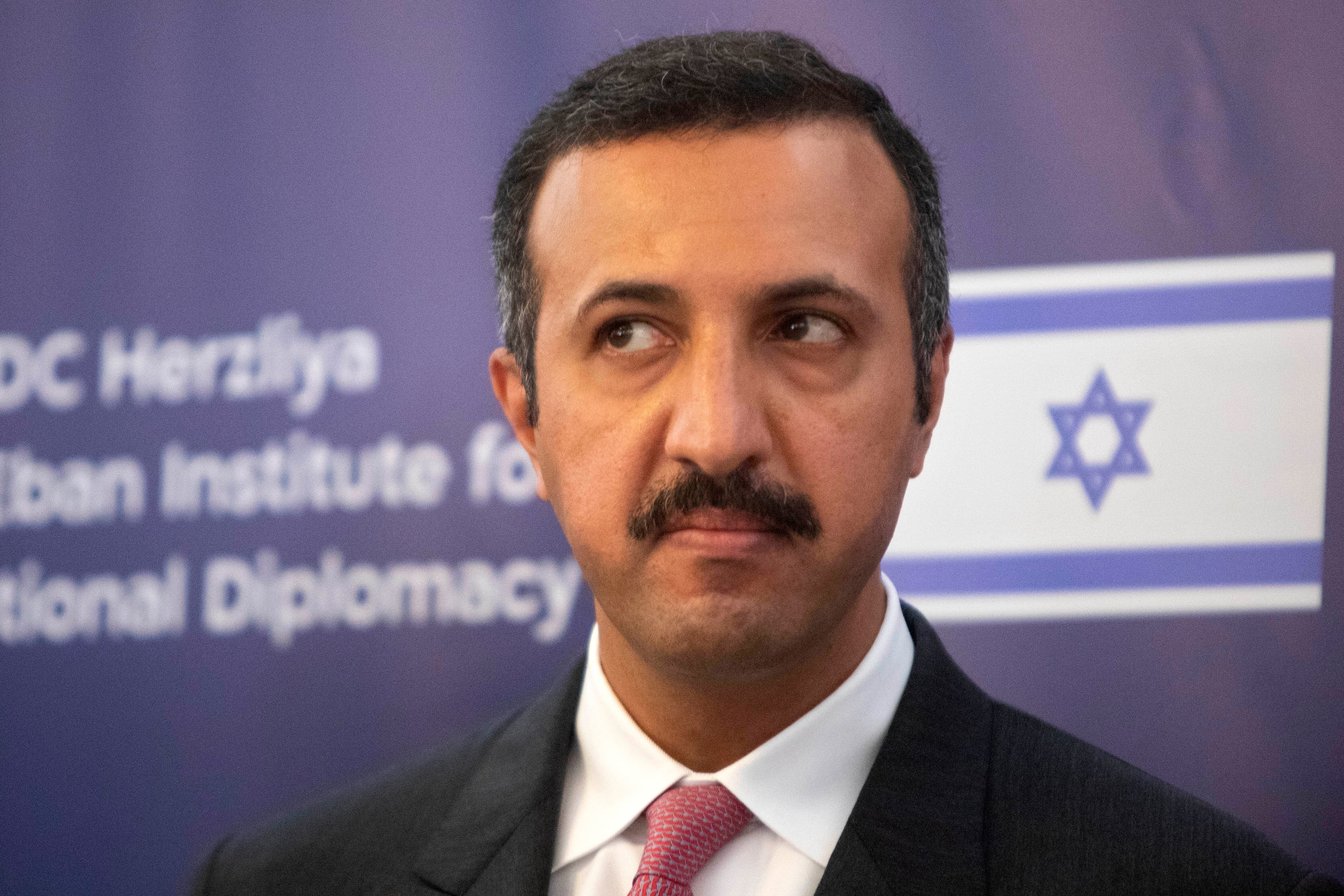Israeli foreign minister lands in Morocco to strengthen ties
Israel's foreign minister has arrived in Morocco on a mission to strengthen ties with the North African country less than a year after they signed a deal to normalize relations

Your support helps us to tell the story
From reproductive rights to climate change to Big Tech, The Independent is on the ground when the story is developing. Whether it's investigating the financials of Elon Musk's pro-Trump PAC or producing our latest documentary, 'The A Word', which shines a light on the American women fighting for reproductive rights, we know how important it is to parse out the facts from the messaging.
At such a critical moment in US history, we need reporters on the ground. Your donation allows us to keep sending journalists to speak to both sides of the story.
The Independent is trusted by Americans across the entire political spectrum. And unlike many other quality news outlets, we choose not to lock Americans out of our reporting and analysis with paywalls. We believe quality journalism should be available to everyone, paid for by those who can afford it.
Your support makes all the difference.Israel's foreign minister arrived in Morocco on Wednesday to kick off a bid to strengthen ties with the North African country nearly a year after the two nations signed an accord to normalize relations.
The centerpiece of Yair Lapid s face-to-face diplomacy was to be the inauguration of Israel's mission in the capital, Rabat His two-day visit is the first to the country by an Israeli minister since 2003, and the first such meeting in Morocco since the U.S.-brokered “Abraham Accords” with four Arab states: Morocco, the United Arab Emirates, Bahrain and Sudan.
Israel and Morocco share a long history of formal and informal ties. Many Israelis have lineage that traces back to Morocco, which is still home to a small community of several thousand Jews.
Lapid, who is slated to become prime minister in 2024 under Israel's eight-party coalition government, is expected to meet with his Moroccan counterpart, Nasser Bourita, and sign several agreements to push forward consultation between the two nations.
Lapid is scheduled to inaugurate the Israeli Liaison Office and pray at a synagogue.
Israel and Morocco had low-level diplomatic relations in the 1990s, but Morocco cut them off after the second Palestinian uprising erupted in 2000. The two countries maintained informal ties, with thousands of Israelis traveling to Morocco each year.
As part of the deal to establish formal ties with Israel, the United States agreed to recognize Morocco’s claim over the long-disputed Western Sahara region, though the Biden administration has said it will review that decision. Morocco’s 1975 annexation of Western Sahara is not recognized by the United Nations.
The visit comes as Israel shows off other evidence of the accords moving forward. A senior Bahraini official is visiting Israel this week, where he met with an Israeli general and other officials.
Sheikh Abdulla bin Ahmed Al Khalifa, the undersecretary for political affairs in Bahrain’s Foreign Ministry, attended a signing ceremony Wednesday for a partnership between Israel’s Abba Eban Institute for International Diplomacy and the Gulf country’s Derasat think tank.
“A year ago, there was nothing between our two countries. Today, we have come a very long way,” the sheikh said. “We can confidently say that we have a solid foundation to develop these bilateral ties.”
Israel and Gulf countries had been quietly improving relations for years as they came to view Iran as a shared threat.
“We sign this (memorandum of understanding) at the time when our shared security interests are taking center stage again,” said Ron Prosor, head of the Abba Eban Institute and a former Israeli ambassador to the United Nations.
He said a recent attack on an oil tanker in the Arabian Sea that was widely blamed on Iran, and an exchange of fire last week between Israel and Lebanon’s Iran-backed Hezbollah, had only strengthened Israel and its Gulf partners’ determination to present a “firm front” against Tehran.